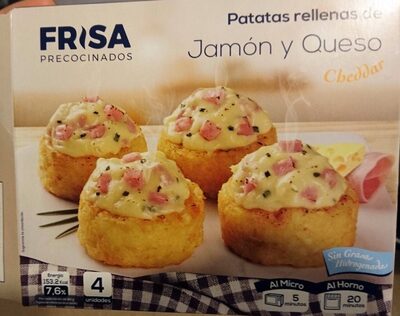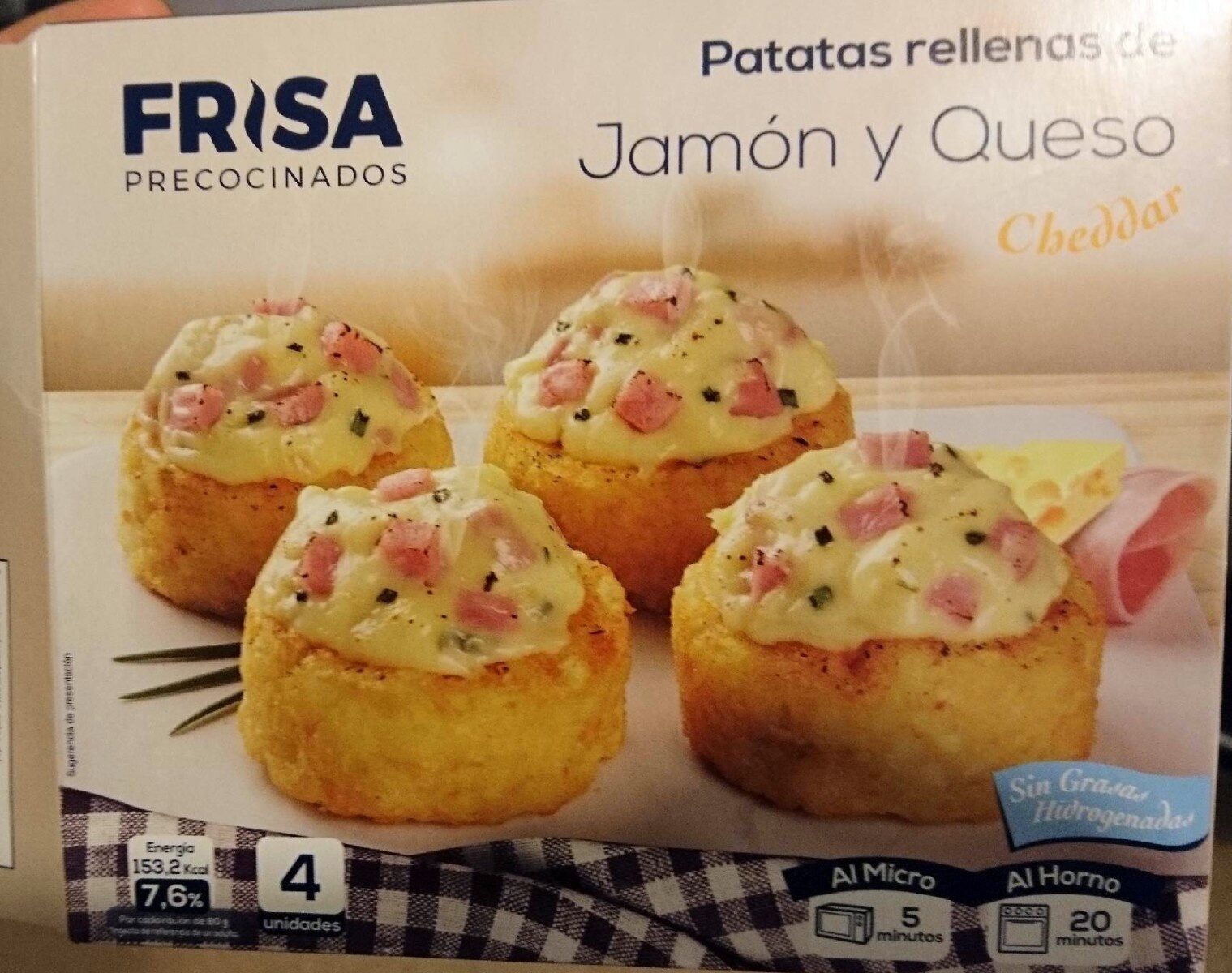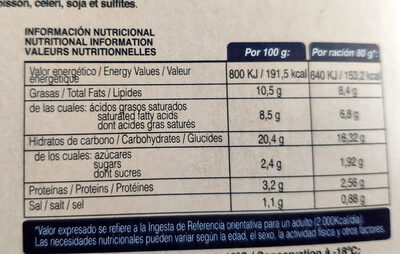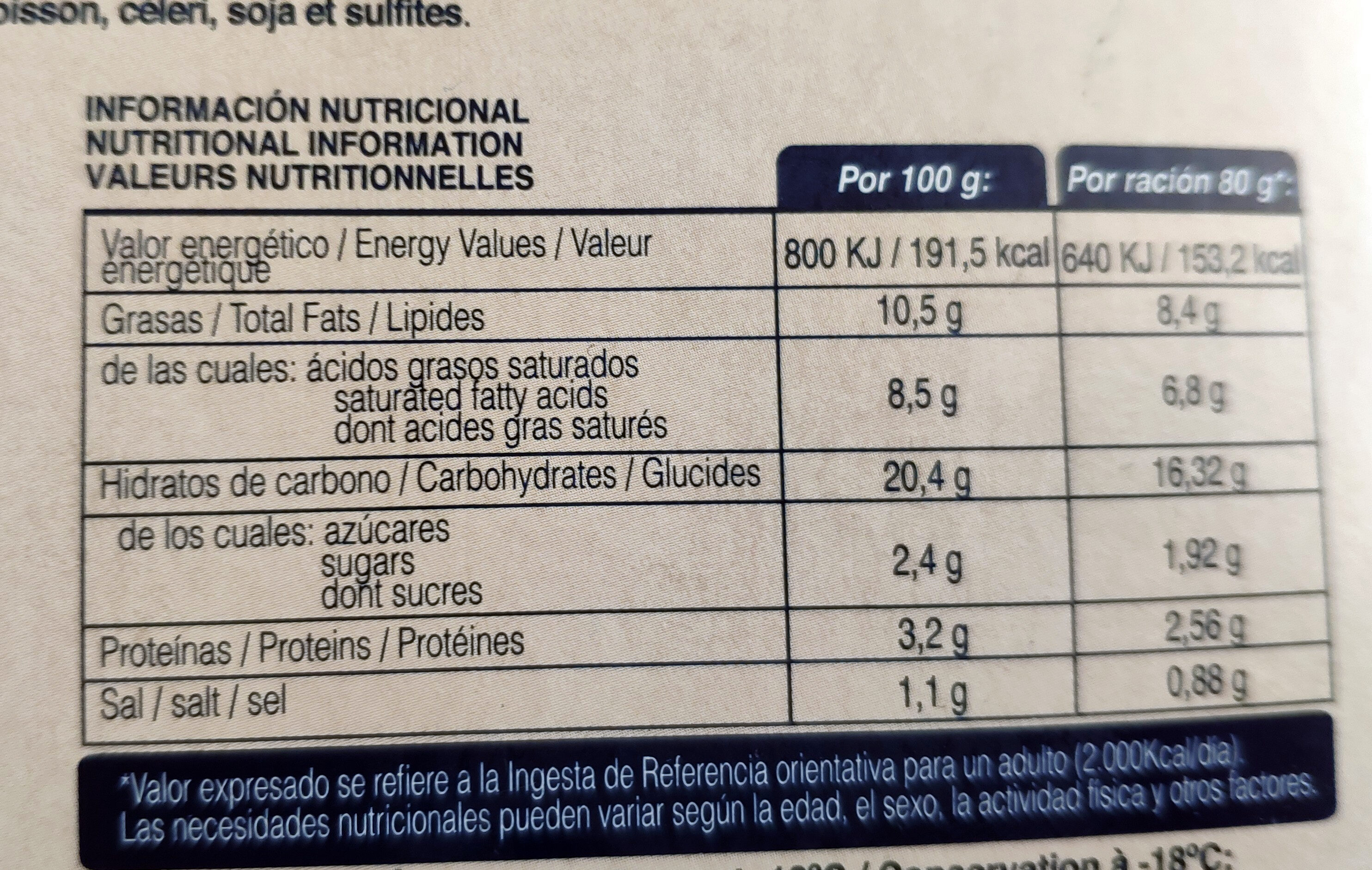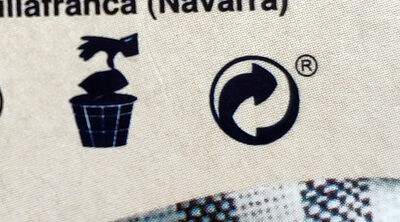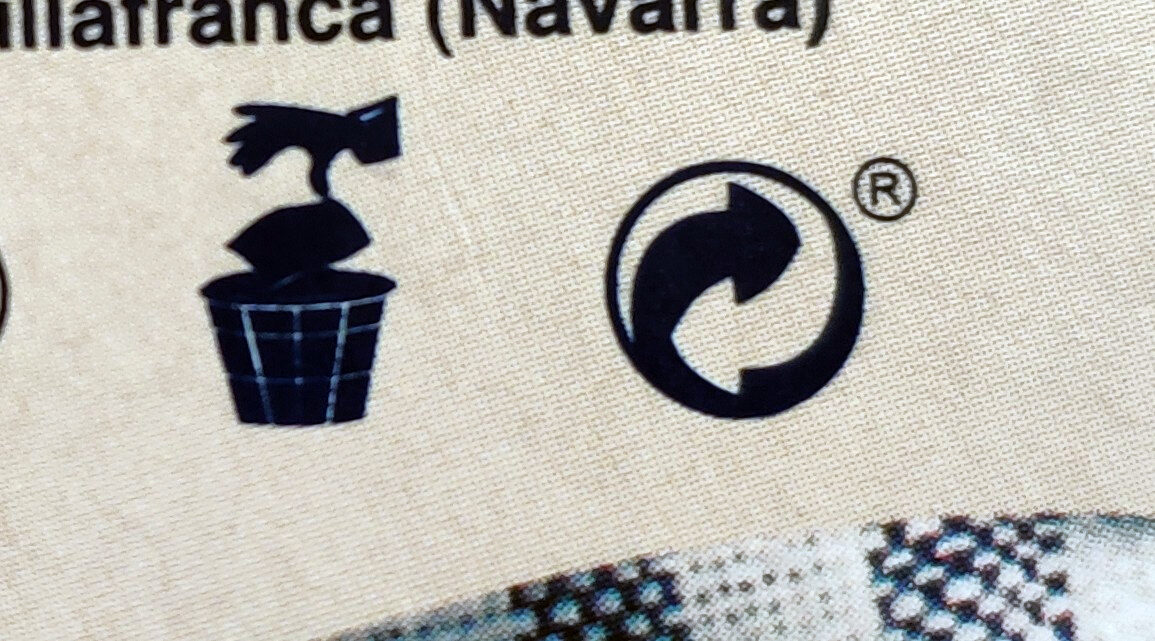Patatas rellenas de jamón y queso cheddar - Frisa - 320g
This product page is not complete. You can help to complete it by editing it and adding more data from the photos we have, or by taking more photos using the app for Android or iPhone/iPad. Thank you!
×
Barcode: 8414475301128 (EAN / EAN-13)
Common name: Prepared potato stuffed with ham and fat prepared
Quantity: 320g
Packaging: es:Green dot
Brands: Frisa
Categories: Plant-based foods and beverages, Plant-based foods, Cereals and potatoes, Meals, Potato dishes, Potato preparations
Labels, certifications, awards:
Green Dot, No hydrogenated fats
Manufacturing or processing places: Spain
Traceability code: ES 26.921/NA CE
Link to the product page on the official site of the producer: https://precocinadosfrisa.com/productos/...
Stores: Consum
Countries where sold: Spain
Matching with your preferences
Report a problem
Data sources
Product added on by kiliweb
Last edit of product page on by aleene.
Product page also edited by alia, openfoodfacts-contributors, thaialagata, yuka.VFpvK0c3Z3F1TUUxZ2ZBeTJnUFQzUDFRbmJXR1FYaW5MdkpOSVE9PQ.
